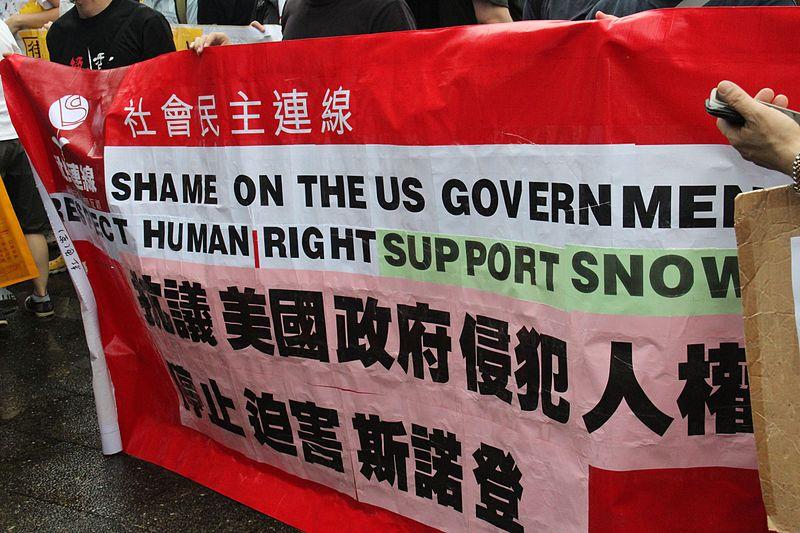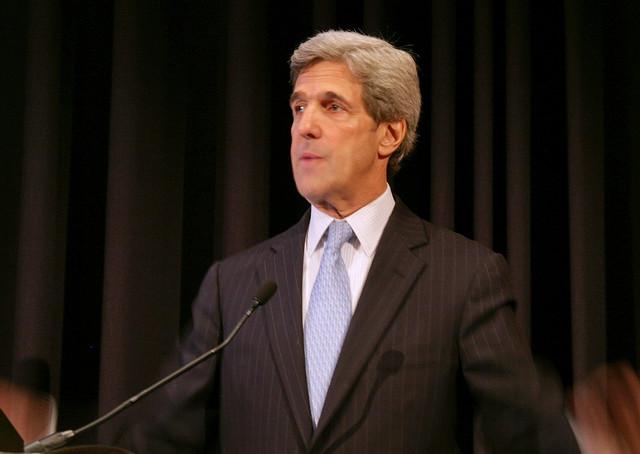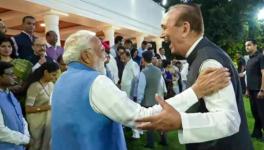Competing in Servility: India and Pakistan
It is really difficult to understand why South Asia continues to reel under a colonial hangover. For there can be no other explanation for the manner in which South Asian governments succumb to the new colonialists, the United States and its allies, on each and every issue.
Even more difficult to comprehend is the attitude of the Indian government that seems to forget that it is backed by a powerful state, and need not bend and crawl when a firm handshake will do.
India and Pakistan that will not tolerate a sneeze from the other side without opening the entire paraphernalia of forensic science, stand like dummies when the US manipulates both at will. Pakistan barely squeaks about drone attacks, and the manner in which the US has over and over again violated its sovereignty, rushing to assure every official American visitor that Islamabad is an ally and a friend and should be treated as such. But then Pakistan is a small country, weighed under bad policies that legitimized terrorism and violence over the years. After the war on terror, the Americans have strengthened their hold on Pakistan, strategic and otherwise, and governments in Islamabad will find it difficult to get out of the pincer grip.
What about India? We are a large country. We are a democracy. We are supposedly growing. Why do our governments forget this, and turn India turtle for a kick or a pat whenever the Americans so demand. This has become far worse under the UPA government and Prime Minister Manmohan Singh who seems to be in office just to deliver whatever the Americans ask for. And the reason has little to do with him and the Congress party, and more to do with the masses of India that still have some dignity and self respect left, and are refusing to condone New Delhi’s bated breath admiration for the US.
It almost seems that the grapevine whisper that the Minister of External Affairs of India has to have the US support to survive has some substance to it. As there can be no other explanation for the Indian foreign minister Salman Khurshid actually excusing the US for “snooping” and insisting that its intensive surveillance program was only a “computer an analysis of patterns.” He went to the extent of supporting the US argument in the wake of whistleblower Edward Snowden’s revelations, that the surveillance had been used by the Americans to “prevent serious terrorist attacks in several countries.” This absurd support had embarrassed the government that fielded a joint secretary to counter the Ministers remarks by admitting that the surveillance was a little more that computer analysis. Media reports have been suggesting differences on this issue between Khurshid and the National Security Advisor Shiv Shanker Menon who was reportedly in favour of taking up the issue sternly with the US. While this could not be ascertained, the fact remains that instead of a demarche that governments often issue at the drop of a hat, or strong censure, the UPA has decided to soft pedal the issue instead of examining the very serious ramifications of this surveillance.

Image Courtesy: wikipedia.org
A second shift in the Indian foreign policy position has become evident after the visit of US Secretary of State John Kerry to India recently. Mr Khurshid has now announced that New Delhi was not averse to a role for the Taliban in the peace process in Afghanistan. He chose to make this announcement not in New Delhi or through a MEA statement, but while addressing the 20th Association of Southeast Asian Nations Regional Forum in the Bruneian capital Bandar Seri Begawan,” This dialoue,” the Minister said, “must involve all sections of the Afghan society and armed opposition groups, including the Taliban.” This is a major departure from the Indian position that opposed such a dialogue, and insisted that there was no difference between the good and the bad Taliban, as Pakistan had been insisting. The process through which the government changed its position, and decided to support talks with the Taliban, has of course not been shared with the country leading to the assumption that this shift came at the instance of John Kerry.

Image Courtesy: flickr.com
A third indication of continuing US pressure was New Delhi’s immediate, in fact earlier than others, denial of asylum to Edward Snowden wanted by the Americans for blowing the whistle on its extensive surveillance program. India was on Snowden’s wish list of countries to which he had applied for asylum, but New Delhi denied this request within hours. This despite the fact that India has given political asylum to a large number of persons in the past, including the high profile Dalai Lama, Tamil separatists and others. In this case, however, the government did not want to sour relations with the US even though it is one of the countries that the Americans have placed under their surveillance scanner. But perhaps India is not in a position to argue as it is setting up its own surveillance centre to spy on its citizens, with the sovereignty of a nation getting lost in the rights of the individual.
The leeway given to the West is thus huge, and one cannot help think of how often Islamabad and New Delhi are at each others throats for a little out of sync word here, or a rude gesture there. War drums are beaten, threats and angry words are exchanged, before the two agree to ride over the obstacle one more time. But the US can bruise sentiments, override international law, kill citizens, frame individuals, and spy on South Asian missions without a murmur of dissent.
And then we say we are independent, we have thrown the British out, we are sovereign. Sovereignty is not just about territorial boundaries, it is about peoples and mindsets. And clearly our governments need to shed the mindset of the past to infuse new meaning into a term that has been overused and abused by the political class.
Disclaimer: The views expressed here are the author's personal views, and do not necessarily represent the views of Newsclick
Get the latest reports & analysis with people's perspective on Protests, movements & deep analytical videos, discussions of the current affairs in your Telegram app. Subscribe to NewsClick's Telegram channel & get Real-Time updates on stories, as they get published on our website.
























